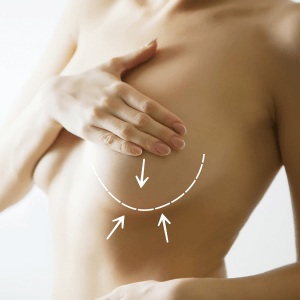How To Minimize Scars After Breast Reduction Surgery
I get a lot of questions about breast reduction surgery and one question in particular that most women ask about is scarring after surgery. In every surgical procedure, there will be some degree of scarring due to the incision. Many patients worry about how visible the scars will be. Let’s discuss scars and the ways to help minimize scarring after a breast reduction.
The most important thing to keep in mind is you must always make certain you follow all pre and post-surgical instructions. This way your body will be prepared for proper and speedy healing after breast reduction surgery.
Your Scar After Surgery
Your surgical incisions heal when the body forms new collagen fiber to repair the damage, but this does not result in regular skin tissue. The new scar tissue is not as strong as your normal skin. The new fibers align themselves in a randomly mismatched formation, creating a weaker structure. This is why regular movements can pull and widen scar tissue during the healing process.
Sutures buried within the dermal tissue give additional strength to your external sutures as the incision heals. Your body’s maximum collagen production is accomplished in the first four to six weeks after surgery, but your scars can change in appearance for about a year. The amount of collagen actually decreases, but the strength goes up as the fibers align. Genetics plays a crucial role in your healing process. The amount of collagen the body lays down and how it is remodeled as you heal is hugely determined by genetic factors. It is common for ethnic patients to make thicker or darker scars. While keloids can occur they are far less common than a thick hypertrophic scar.
Managing Your Expectations
A breast reduction is a procedure to remove the excess breast fat, tissue, and skin to make your breasts more proportioned to your body. Your situation and what needs to be done during your surgery will determine the type of incision that is made. During my discussions with my patients, I explain where the incisions will be so they won’t be surprised at finding a scar they didn’t expect.

The planning of scar placement is important to provide for proper breast shape. There are a few incision methods, the most common is the wise pattern. It is sometimes referred to as the anchor pattern because of the type of scar it leaves. Other scar patterns may only be a vertical or horizontal scar. There is the lollipop procedure which reduces the dimension of the scarring and minimizes healing. The wise pattern is the mainstay of most breast reduction because it removes the most extra skin. It allows both a horizontal and vertical tightening of the breast.
Topical Products
Many of my patients use topical products such as Vitamin E Oil or cocoa butter. Some believe silicone sheeting sometimes helps with softening scars and reducing their appearance, but the science is unclear at best. I do believe that pressure and massage of a scar may help it to remodel sooner. While there are many scar treatments on the market and I don’t object to them, genetics and choosing your parents carefully is key. I suggest you wait until the scar is healed before attempting to apply any topical ointments.
Vitamin E Oil
Vitamin E, or alpha-tocopherol, is a fat-soluble vitamin available in foods and supplements. Vitamin E has antioxidant properties and protects your cells against damage caused by free radicals. It also supports immune health. Be mindful that wounds actually heal from the inside out, so make sure your diet is rich in good food sources of vitamin E to ensure proper healing of your scar.
Silicone
Silicone treatments may help to put pressure on the scar tissue, producing quicker remodeling of the scar tissue. They should only be started once the wound has fully healed after two to three weeks.
Message
Gently massaging with cream or oil helps to soften and flatten the scar. You should only message the area once the scab has disappeared on its own. Massaging helps with distributing the collagen, preventing it from building up. Applying pressure can also increase blood flow in the skin, speeding up the healing process.
Permanence
All scars are permanent. Some can look like fine lines and some can be wider or thicker. It is important to embrace both possibilities. While bad scars are rare, I have found breast reduction surgery to be one of the most gratifying things for my patients.
Summary
The bottom line is to give it time. Even if you follow all of my advice, it’s important to understand that scarring is a natural process of healing and it can take time to see improvements. If you have any questions, I would love to talk to with you more. Schedule an appointment for a free consultation.
